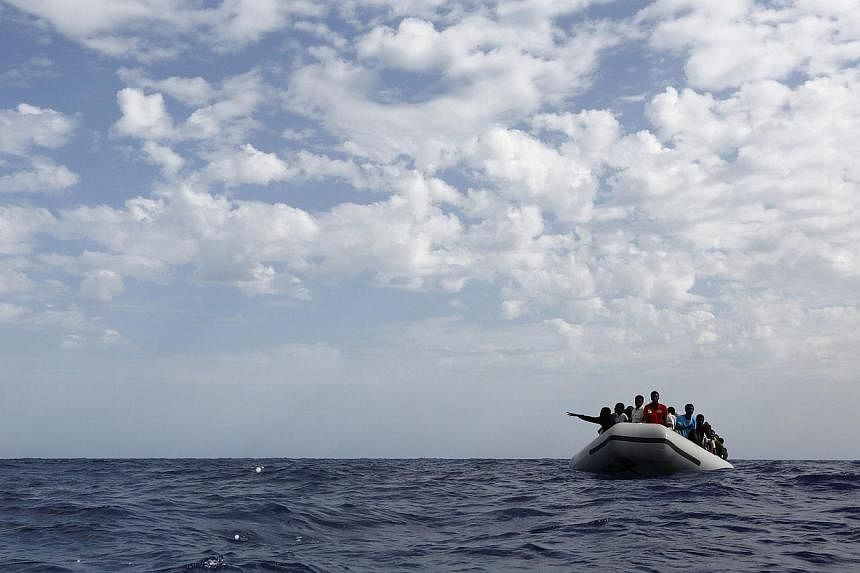Despite criticism over not having done enough to address longstanding migrant issues, Europe dithered at an emergency summit called after the tragic deaths of hundreds off Libya's coast. The "minimalist" response, as described by United Nations officials, is a sorry reflection of the European Union's muddle in the face of growing migration pressures.
To avert further disasters at sea, there are moves to emulate Italy's search and rescue operation, Mare Nostrum, but on a larger scale. While that would be a humane course of action, it could encourage more risky boat departures.
Australian Prime Minister Tony Abbott's call to "stop the boats" would in effect push the migrants to other states. And a suggestion to farm out migration checks to transit nations - even if it could be done in lawless Libya, the main staging point of smugglers - would first require more European nations to take asylum seekers and not expect Italy, Malta and Greece to bear all the burden.
Clearly, Europe needs to abandon its patchwork of rules and determinedly forge a common immigration policy. But that process could take years and would be hobbled by unemployment woes and domestic resistance fanned by far-right parties such as France's National Front.
German Chancellor Angela Merkel indicated that funding for an immediate plan of action would not be an obstacle. What could prove more elusive is its effectiveness as "the European Union's creaking institutions are ill suited to rapid response", as The New York Times observed. It will take considerable resources to be on top of the tangled trails of frantic migrants - using tourist visas and commercial connections to get to a boarding point, before switching boats three times at sea. Also, proposed efforts to capture and destroy traffickers' vessels will have to comply with international law.
The reality is that the migrant crisis could persist for years, given the war, joblessness and persecution faced by migrants from failed states in Africa and the Middle East. To deal with this, Europe will need to formulate a unified, coherent strategy. The EU could engineer an orderly flow by opening its borders judiciously and benefiting from a boost to its overall GDP, as some have argued. Others have advocated steps to stem the flow by implementing a Marshall Plan for Africa, led by the business sector - an urgent need given the grinding poverty in sub-Saharan Africa. The original Marshall Plan, an American initiative, helped to put war-torn Europe back on its feet after the end of World War II. It's now Europe's turn to give back - by not just aiding imperilled boats but also nations sinking under the weight of mass desperation.

